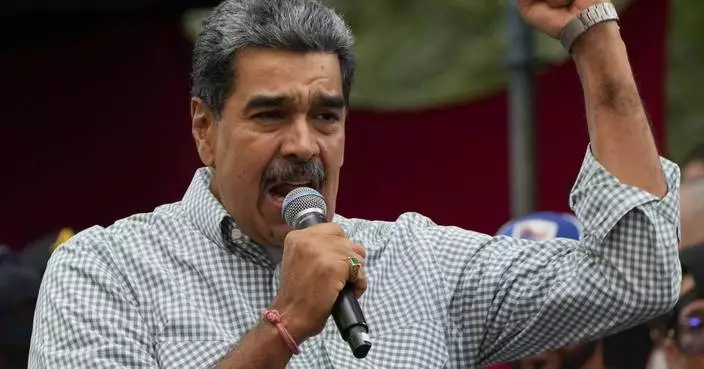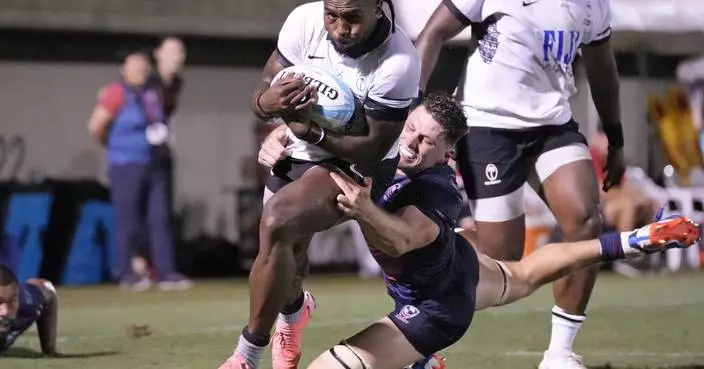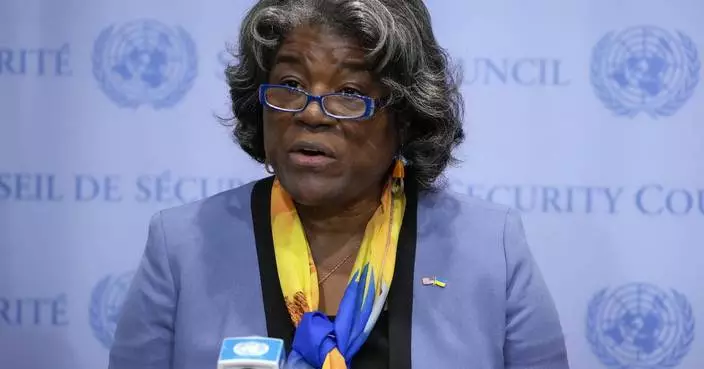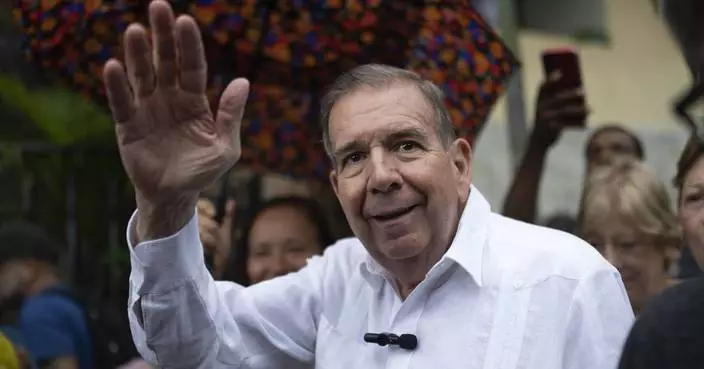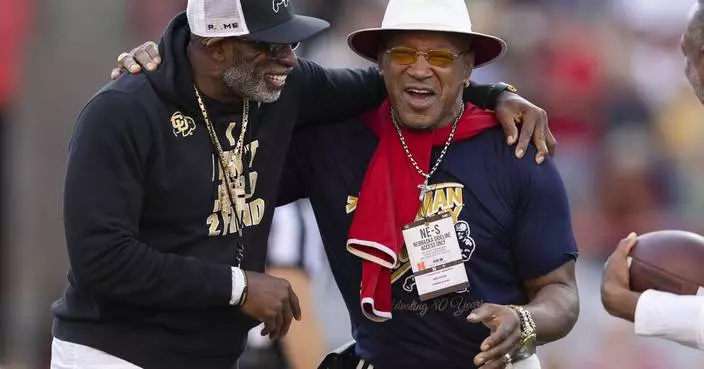More than 40 years after a serial killer dubbed the "Doodler" terrorized San Francisco's gay community, police released a sketch Wednesday of what the man might look like today and announced a $100,000 reward for details leading to his capture.
Police believe the killer stabbed at least five men to death between early 1974 and late 1975.
He became known as the "Doodler" after a victim who survived an attack told police the man was doodling while they talked at a late-night diner and said he was a cartoonist.
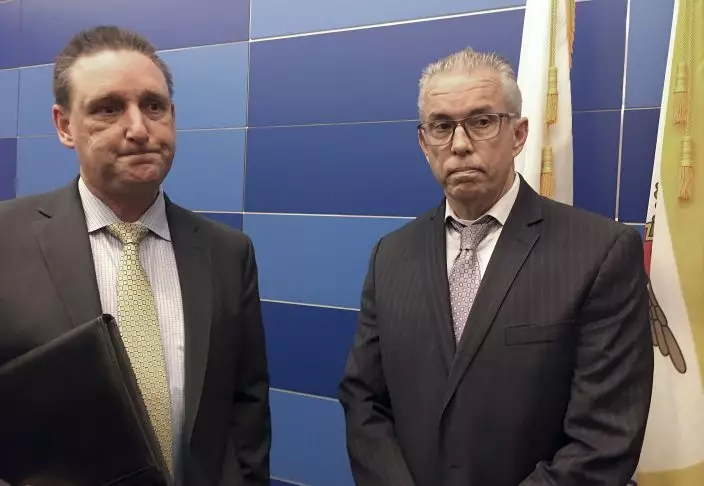
San Francisco Police Department Commander Greg McEachern, left, and Inspector Dan Cunningham, who run the SFPD's cold case unit, stand at a news conference after releasing a pair of sketches, Wednesday, Feb. 6, 2019, showing what a serial killer might look like now in a cold case involving at least five stabbing deaths of gay men in the mid-1970s in San Francisco. The killer was dubbed the "Doodler" after he told a person who later became a victim and survived that he was a cartoonist. It's one of several cases being re-examined after the capture last year of the "Golden State Killer" through DNA analysis. (AP PhotoJocelyn Gecker)
At a news conference, police released a pair of images that showed a 1975 sketch of a suspect and an "age-progression" showing what he might look like now.
"In the 1970s, this was gripping the gay community and San Francisco," police Commander Greg McEachern told the news conference, saying authorities were releasing the new sketch in hopes of bringing justice to victims of the "horrendous homicides."
It's one of several cold cases, particularly serial crimes, being re-examined after the capture last year of the notorious "Golden State Killer" through DNA analysis, McEachern said.
Police described the killer as an African-American male, about 5 feet, 11 inches tall with a lanky build who was likely in his early 20s during the attacks.
At the time, a witness was able to give investigators a description of the attacker, leading to a man being detained in 1976 but never charged.
McEachern said police have interviewed the man since returning to the case and he remains a person of interest. His name was not released and authorities declined to say if he resembled the man in the sketches.
The killer targeted white men he met at after-hours gay clubs and restaurants in San Francisco. He usually sketched them before having sex and stabbing them.
The bodies of four men were found along the beach. Another stabbing victim was found in Golden Gate Park.
"Even now, the story gives me chills," said prominent gay activist Cleve Jones, who recalls how the string of killings terrified the gay community. "Imagine, you're out at a club having a drink, and someone hands you a sketch they've done of you. I can't think of a more disarming ploy to gain someone's trust."
An Associated Press story from 1977 quotes police as saying the suspect at the time could not be charged because three survivors, including a "well-known entertainer" and a diplomat were reluctant to "come out of the closet" to testify against him.
AP interviewed gay rights advocate Harvey Milk at the time about the victims' refusal to testify.
"I can understand their position," Milk said. "I respect the pressure society has put on them."
The interview with AP came just over a year before Milk, the first openly gay man elected to public office in the U.S., was assassinated.
Police on Wednesday also announced a reward of $100,000 for information leading to the arrest of the killer and released audio of an anonymous call made to police on Jan. 27, 1974, reporting a body found near Ocean Beach in San Francisco.
Responding officers discovered the body of 50-year-old Gerald Cavanaugh, the first of the killer's five known victims.
Police are seeking information on the identity of the caller, who declined to give his name.
"I believe there might be a dead person," the caller said. "But I didn't want to get too close to him because you never know what could happen."
DHAKA, Bangladesh (AP) — A high-level U.S. delegation met Sunday with the head of Bangladesh's interim government, Nobel laureate Muhammad Yunus, to affirm “dedication to fostering inclusive economic growth," according to the American embassy in Dhaka.
Yunus took over after former Prime Minister Sheikh Hasina fled the country last month amid a mass uprising. She was accused of corruption, violation of human rights and excessive use of force against the protesters.
During her 15-year rule, Hasina enjoyed close relations with India, China and Russia who have heavily invested in the country’s infrastructure development, trade and investment. The U.S. has also become the single largest foreign investor in Bangladesh under Hasina.
Yunus on Sunday said he sought U.S. support “to rebuild the country, carry out vital reforms, and bring back stolen assets,” his press office said in a statement after he met the delegation at the State Guest House Jamuna in Dhaka.
He told the U.S. representatives his interim administration has moved fast to “reset, reform, and restart” the economy, initiate reforms in financial sectors, and fix institutions such as the judiciary and police, the statement said.
The U.S. delegation, led by Brent Neiman, assistant secretary for International Finance at the U.S. Department of the Treasury, had representatives from the U.S. Agency for International Development, and Office of the U.S. Trade Representative. Donald Lu, assistant secretary of State for South and Central Asian Affairs, joined the delegation after visiting India.
They met with several officials in Dhaka, including Touhid Hossain, the country’s adviser to the Ministry of Foreign Affairs. The USAID also signed an agreement to provide $202.25 million in aid to Bangladesh.
The U.S. embassy on X underscored how American companies are entrenched in the South Asian country.
“With the right economic reforms in place, the American private sector can help unlock Bangladesh’s growth potential through trade and investment,” the embassy wrote on its official account.
The delegation also met representatives of the American companies under the American Chamber of Commerce in Bangladesh (AmCham) operating in Bangladesh upon arriving Saturday.
Concerns over safety and lack of order in Bangladesh were relayed by the companies' agents.
AmCham President Syed Ershad Ahmed said at the meeting that while there were improvements after the interim government was installed, “there are some bottlenecks too.” Profit repatriation amid the ongoing crisis of U.S. dollars and challenges in the supply chain resulting from congestion at ports were among the issues he raised.
The meeting came as unrest took hold of the country's major garment industry with workers walking out, leaving factories shuttered, as they demanded better benefits including higher wages. The factory owners, the government and workers’ leaders are holding meetings to ease the tension.
Bangladesh is one of the most vulnerable countries to climate-induced disasters. The U.S. embassy on its official Facebook page said the United States wanted to help it "mitigate climate risks.”
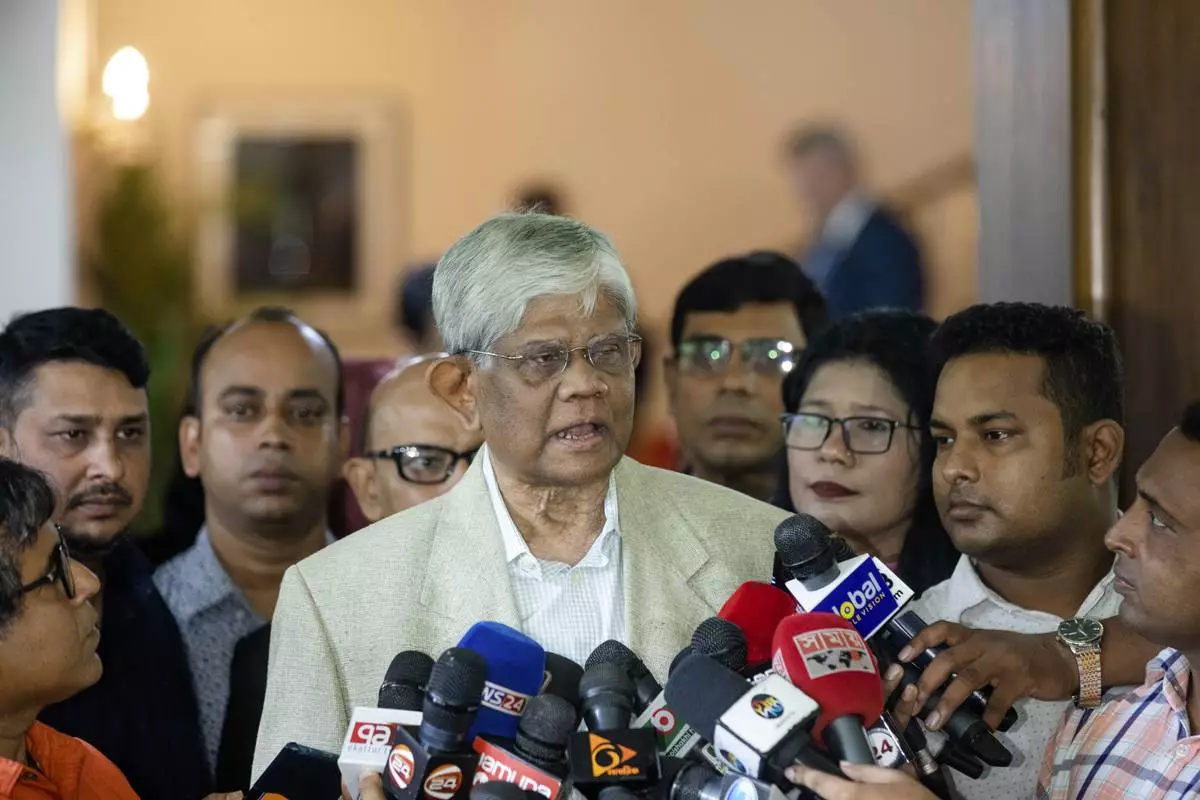
Dr. Salehuddin Ahmed, Adviser to Bangladesh's interim government's Ministry of Finance, center, speaks to media personnel after the signing of the 6th amendment of 'The Development Objective Grant Agreement (DOAG)' between US and Bangladesh, in Dhaka, Bangladesh, Sunday, Sept. 15, 2024. (AP Photo/Rajib Dhar)
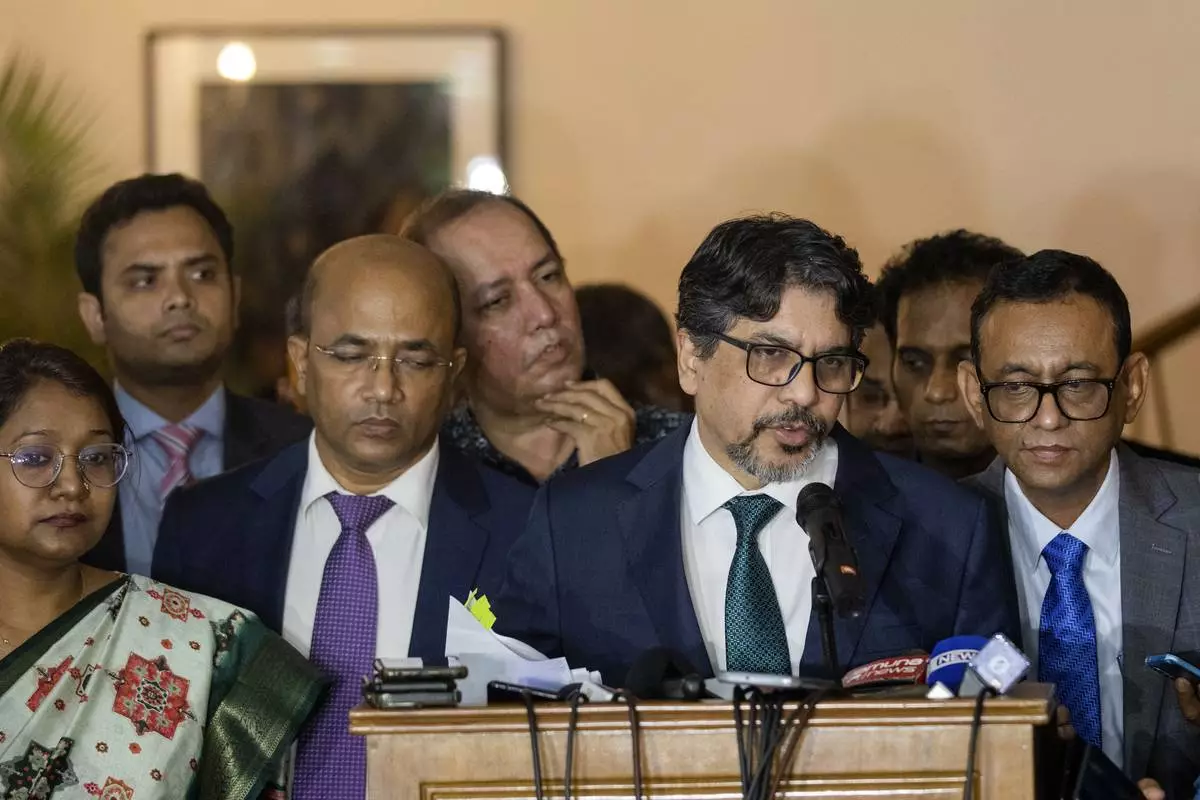
Md. Jashim Uddin, Foreign Secretary in Bangladesh's interim government, speaks to media personnel after the signing of the 6th amendment of 'The Development Objective Grant Agreement (DOAG)' between the United States and Bangladesh, in Dhaka, Bangladesh, Sunday, Sept. 15, 2024. (AP Photo/Rajib Dhar)
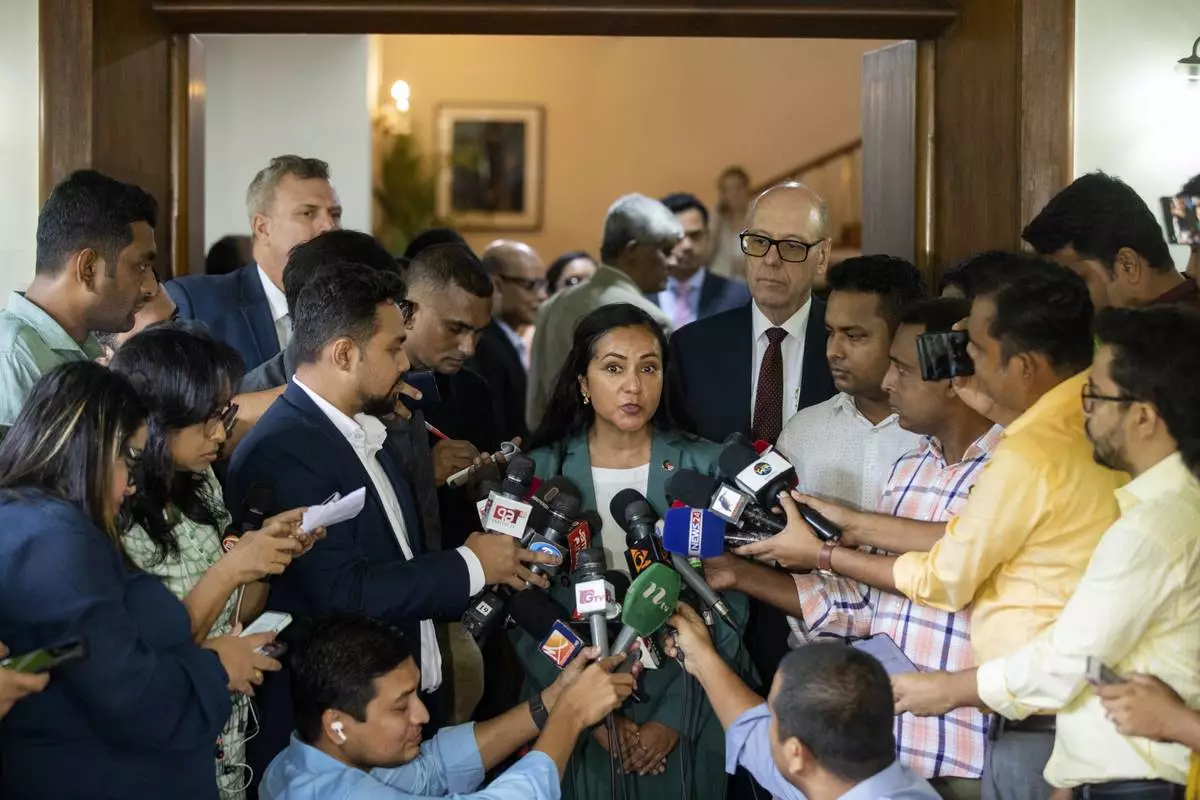
Anjali Kaur, Deputy Assistant Administrator of the Bureau for Asia, United States Agency for International Development (USAID), center, speaks to media personnel after the signing of the 6th amendment of 'The Development Objective Grant Agreement (DOAG)' between US and Bangladesh, in Dhaka, Bangladesh, Sunday, Sept. 15, 2024. (AP Photo/Rajib Dhar)
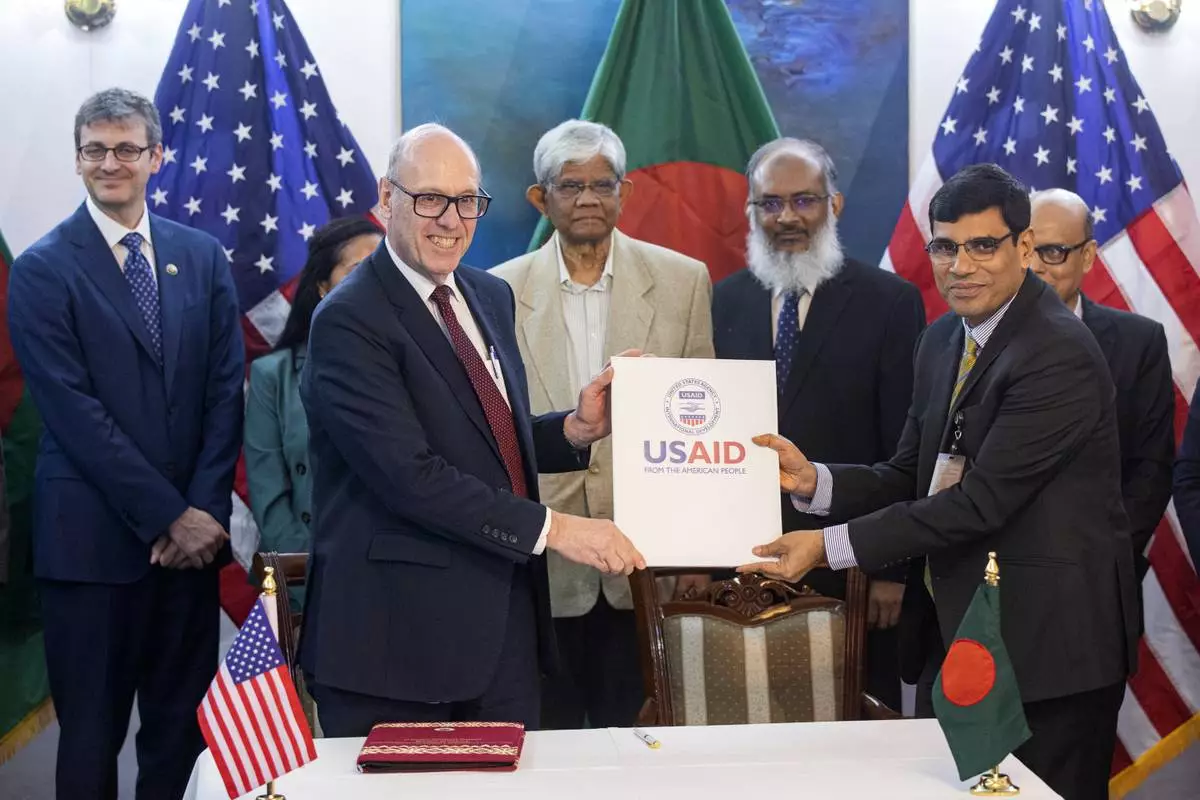
Reed J. Aeschliman, USAID Mission Director for Bangladesh, front left, and A. K. M. Shahabuddin, Additional Secretary, Ministry of Finance, Bangladesh, pose for a photograph with other officials after signing the 6th amendment of 'The Development Objective Grant Agreement (DOAG)' in Dhaka, Bangladesh, Sunday, Sept. 15, 2024. (AP Photo/Rajib Dhar)
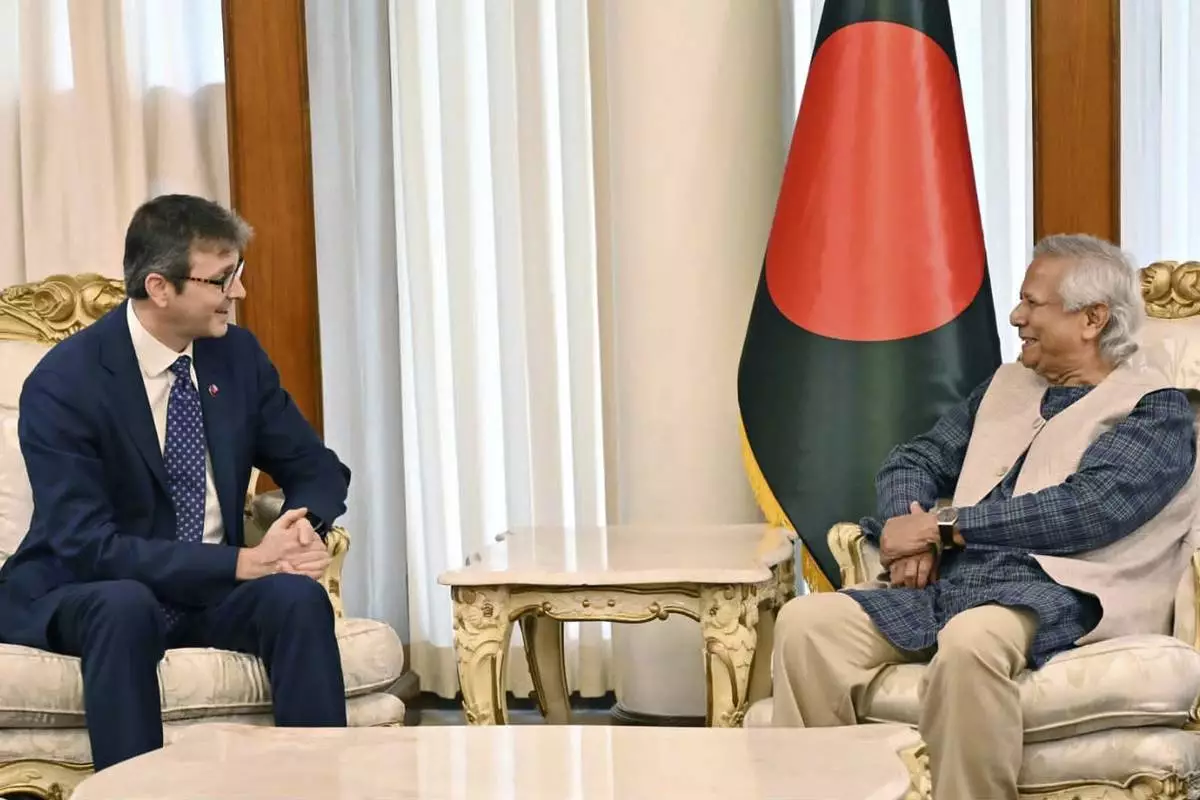
This photo handed out provided by Bangladesh Press Information Department (PID) shows Brent Neiman, US Assistant Secretary of the Treasury for International Finance and Development, left, speaking with Muhammad Yunus, Bangladesh's interim government's leader, in Dhaka, Bangladesh, Sunday, Sep. 15, 2024. (PID via AP)









